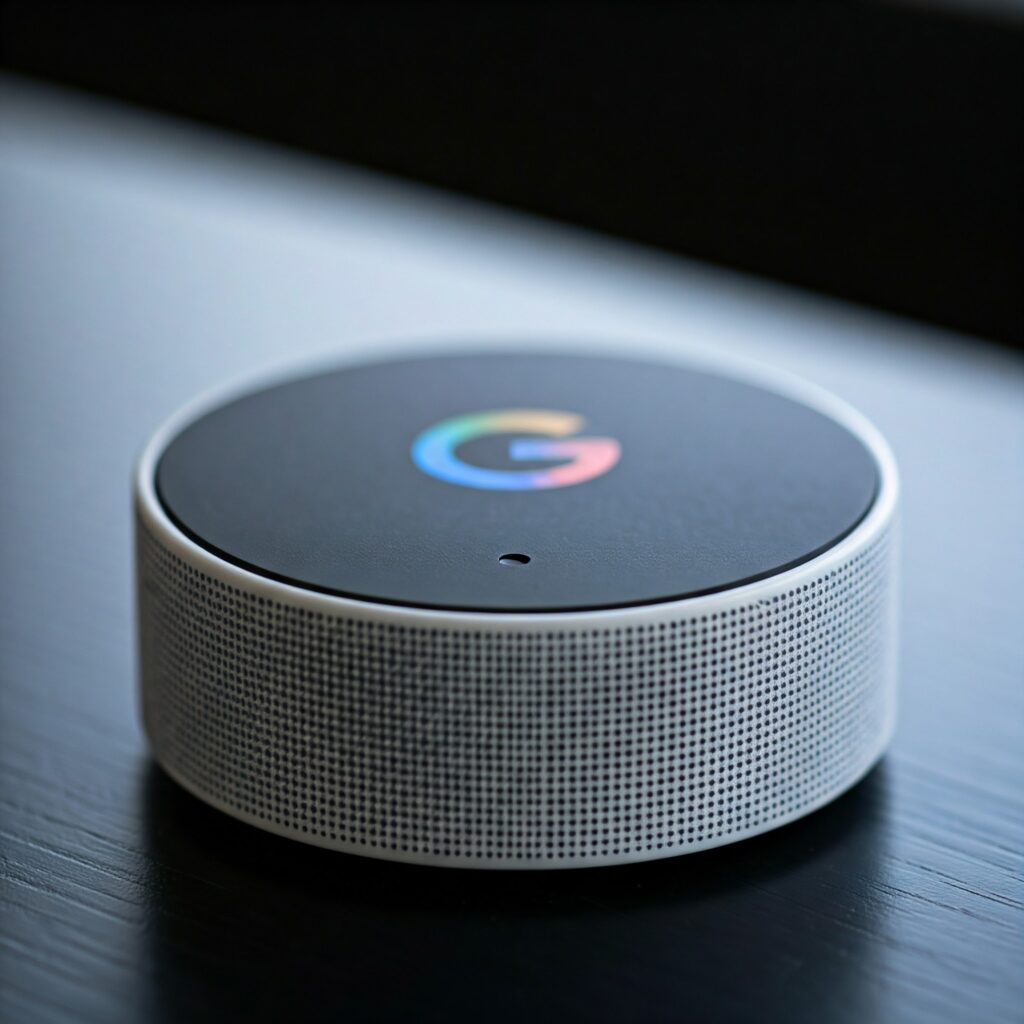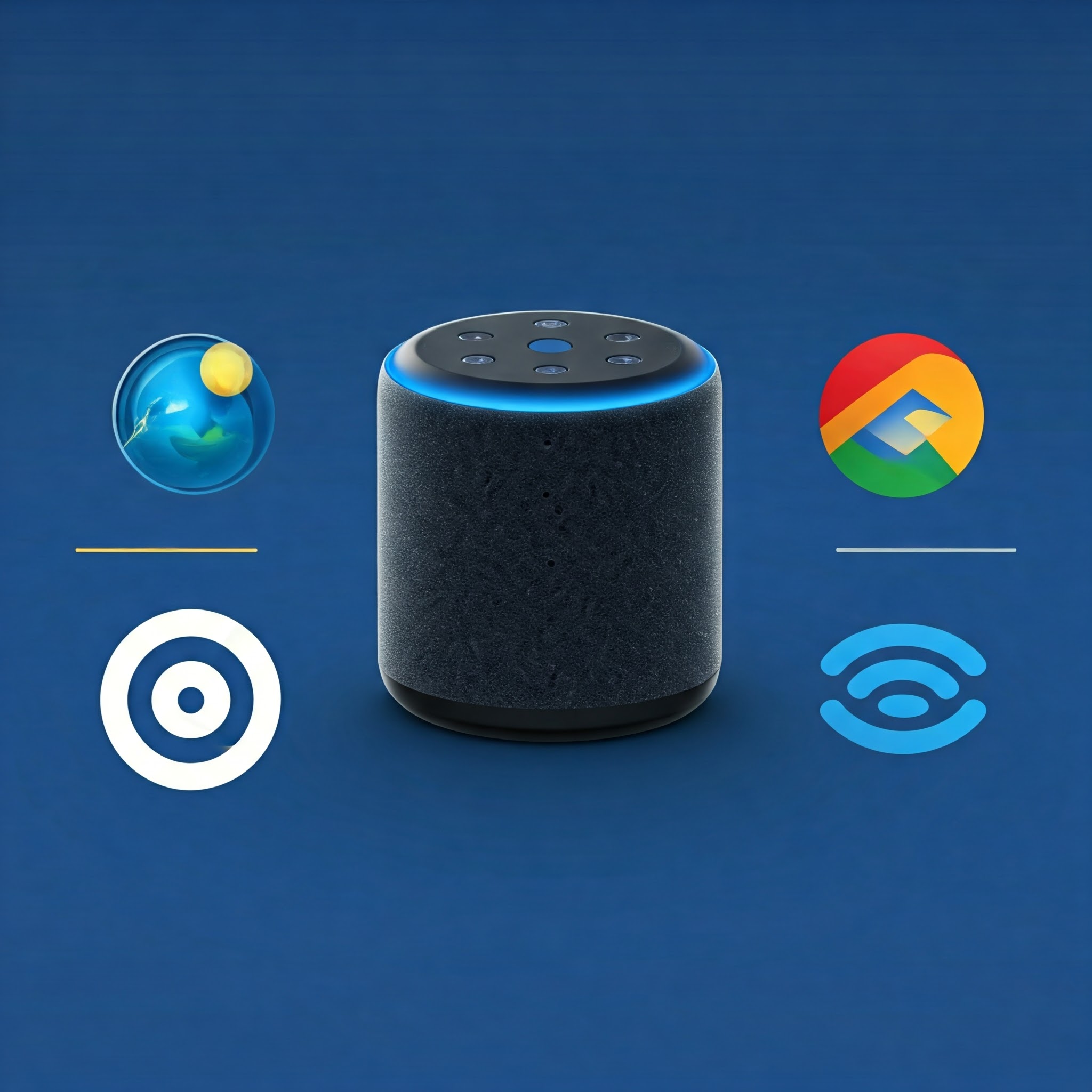The rise of voice assistants has transformed how we interact with technology. From setting timers and playing music to controlling smart home devices and answering complex questions, these digital helpers have become increasingly integrated into our daily lives. But with three major players dominating the market – Amazon’s Alexa, Google Assistant, and Apple’s Siri – choosing the right one can be a challenge. This article explores the strengths and weaknesses of each to help you decide which voice assistant is the best fit for your needs.
Amazon Alexa: The Smart Home Hub

Alexa has established itself as a leader in the smart home arena. With its vast ecosystem of compatible devices, Alexa excels at controlling everything from lights and thermostats to locks and security systems. Its extensive library of “skills” – voice-activated apps – further expands its functionality, offering everything from games and recipes to news briefings and fitness tracking.
Photo is only for reference and does not attempt to reflect the actual products.
Strengths:
- Smart Home Dominance: Alexa boasts the widest range of compatible smart home devices, making it a natural choice for those building a connected home ecosystem.
- Extensive Skills Library: The sheer number of available skills provides unparalleled versatility and customization.
- Strong Shopping Integration: As an Amazon product, Alexa seamlessly integrates with Amazon’s shopping platform, allowing for easy voice-based purchases.
Weaknesses:
- Contextual Understanding: While improving, Alexa sometimes struggles with complex or multi-part requests, requiring more precise phrasing than Google Assistant.
- Search Capabilities: Alexa’s search capabilities are generally weaker than Google’s, often relying on Bing for web searches, which can be less comprehensive.
Google Assistant: The Knowledge Powerhouse
Leveraging Google’s vast knowledge graph and search expertise, Google Assistant excels at understanding natural language and providing accurate, comprehensive answers to complex questions. Its deep integration with other Google services, such as Search, Maps, and Calendar, further enhances its utility.

Photo is only for reference and does not attempt to reflect the actual products.
Strengths:
- Superior Natural Language Understanding: Google Assistant excels at understanding conversational language, handling complex requests and follow-up questions with ease.
- Powerful Search Capabilities: Backed by Google Search, the Assistant provides highly accurate and relevant information.
- Strong Integration with Google Services: Seamless integration with other Google services offers a cohesive and integrated user experience.
Weaknesses:
- Smart Home Ecosystem: While growing, Google Assistant’s smart home ecosystem is still smaller than Alexa’s.
- Privacy Concerns: Given Google’s data-driven business model, some users may have privacy concerns regarding the amount of data collected.
Apple Siri: The Apple Ecosystem Integrator

Siri is deeply integrated into the Apple ecosystem, offering seamless control over Apple devices and services. Its tight integration with iOS, macOS, watchOS, and tvOS provides a unified experience for Apple users.
Photo is only for reference and does not attempt to reflect the actual products.
Strengths:
- Seamless Apple Ecosystem Integration: Siri works flawlessly across Apple devices, providing a consistent and integrated experience.
- Strong Focus on Privacy: Apple has emphasized its commitment to user privacy, minimizing data collection and processing on its servers.
- Voice Control of Apple Devices: Siri offers excellent voice control over Apple devices, allowing users to perform various tasks hands-free.
Weaknesses:
- Limited Third-Party Integration: Siri’s integration with third-party services is less extensive than Alexa’s or Google Assistant’s.
- Natural Language Understanding: While improving, Siri sometimes struggles with complex requests and natural language understanding compared to Google Assistant.
The Verdict:
Choosing the right voice assistant depends on your individual needs and priorities. If you prioritize smart home control and extensive third-party integrations, Alexa is a strong contender. If you value accurate information retrieval and superior natural language understanding, Google Assistant is the better choice. If you are deeply embedded in the Apple ecosystem and prioritize privacy, Siri is the natural fit. Ultimately, the best way to choose is to try each assistant and see which one best complements your lifestyle and technological needs.



